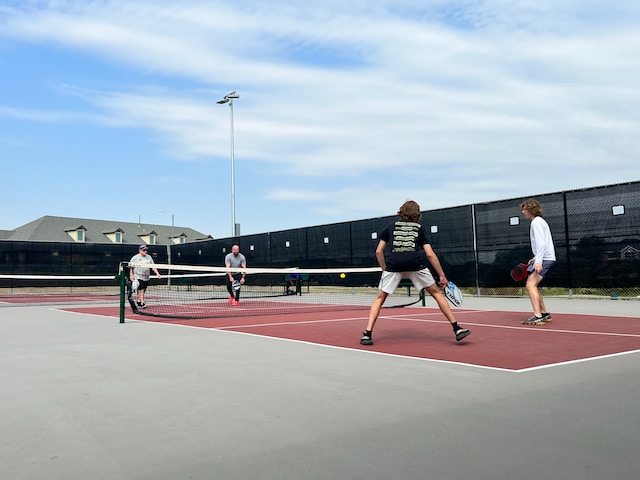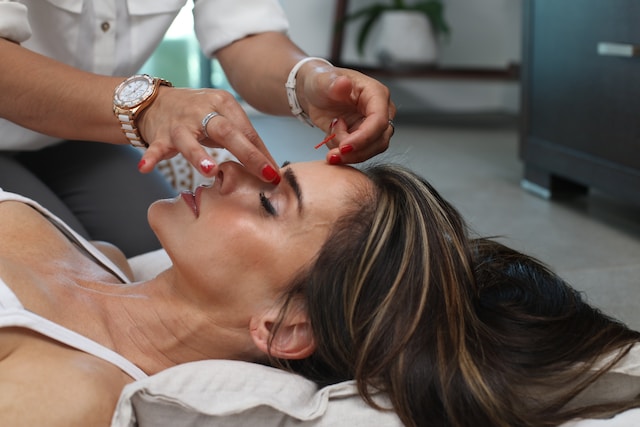

Pickleball is the fastest growing sport in America. 36,5 million Americans have played pickleball from August 2021 to August 2022. This is up from 4,2 million players. Pickleball, which is a hybrid of tennis, Ping Pong and paddleball, is played on a court less than half as large as a tennis court. Dinking, driving and dropping are all physical benefits that players enjoy. Pickleball also has a positive impact on the brain. This makes me happy as a brain expert. Check out these six ways that pickleball can boost your brainpower.
1. Pumps up blood supply to the brain
Pickleball is a great way to get moving. A 2022 Study published in Science & Sports found that playing doubles in the sport increased heart rates on average by 14% and at their peak by 19%. Pickleball can be considered an aerobic activity, and when you increase your heart rate, more blood flows to your brain. More blood flow equals more oxygen, glucose (aka energy) and nutrients for your brain. The prefrontal cortex (PFC) is one of the brain areas that benefit the most from aerobic activity. It is responsible for focus, planning, decision-making and impulse control. High-functioning PFCs are associated with happiness and success across the board.
2. Cerebellum Function Increases
Pickleball is a game that requires coordination and quick reactions. All of this increases the activity in a part of the brain known as the Cerebellum. The cerebellum, located at the back part of the brain, just above the neck area, plays an important role in the processing speed or how fast your brain can perform mental tasks. The cerebellum is also responsible for cognitive flexibility. This helps you cope with sudden changes in plans or unexpected projects. Healthy levels of cerebellum activity improve both processing speed as well as cognitive flexibility.
3. Increased Brain Volume
Size matters when it comes to your brain! Gray matter in the brain is important for memory, movement and emotions. The more gray matter you have, the better. Pickleball and other sports can be beneficial. A Study in the Journal of Science and Medicine in Sport reported that coordinated movements and exercises that require forethought, such as planning to throw a pickleball above your opponent’s heads or smash one at their feet, increase gray matter volume. Other studies show that aerobic exercises like pickleball increase the volume of the hippocampus. This brain structure is important for memory formation.
4. Boosts Mood-Enhancing Neurochemicals
Physical activity releases feel-good chemicals like serotonin and dopamine. According to research, aerobic exercise increases the levels of tryptophan – an essential amino acid that is a precursor for serotonin. Recreational sports like pickleball can improve moods and reduce anxiety. Exercise is just as effective as antidepressants, according to some studies.
5. BDNF Increases
The brain changes constantly and shrinks with age. The birth of new neuronal cells is aided by a protein called brain-derived Neurotrophic Factor (BDNF). Research indicates that pickleball and other heart-pumping exercises boost BDNF. More brain cells mean more protection against cognitive decline. A 2018 report, for example, points out that new neurons have been found in brain areas involved in memory.
6. Brain Aging Protection
Pickleball is a group sport that promotes socialization and brain health. The brain is protected against cognitive decline by maintaining strong friendships in your golden years. In Plos One, a study examined SuperAgers. These are individuals who are in their 80s but have cognitive and memory performance comparable to people three or two decades younger. The study found that SuperAgers have stronger social bonds. In other mouse research, the brains in mice that live together looked younger than those who lived alone.
The brain can benefit in many ways from playing group sports such as pickleball. It is becoming easier to find pickleball courts in the United States. It’s a good idea, of course, to consult your doctor before starting a new exercise program.







